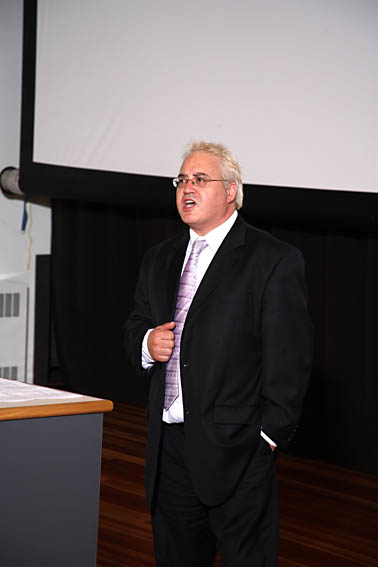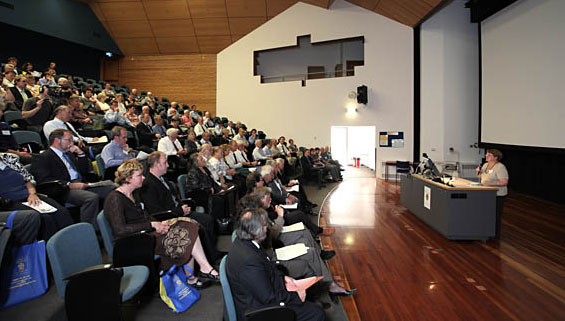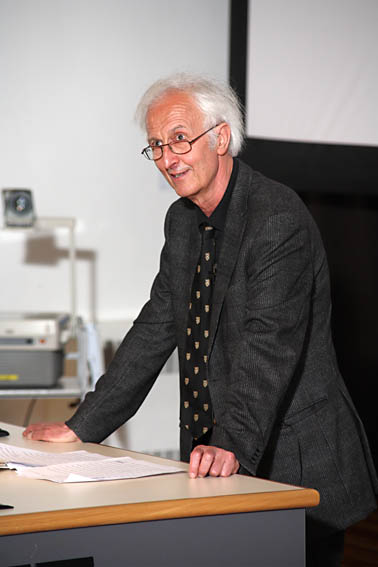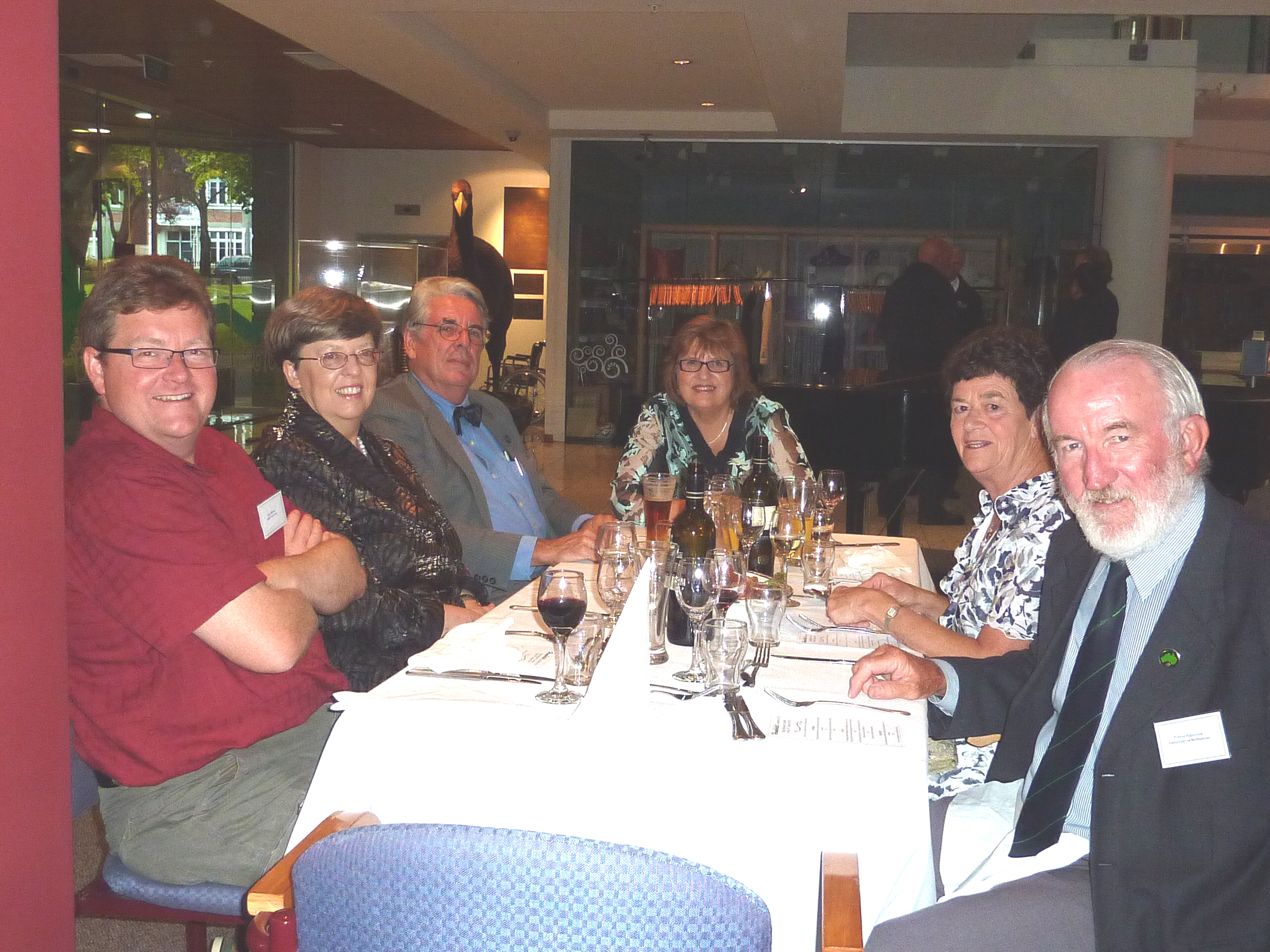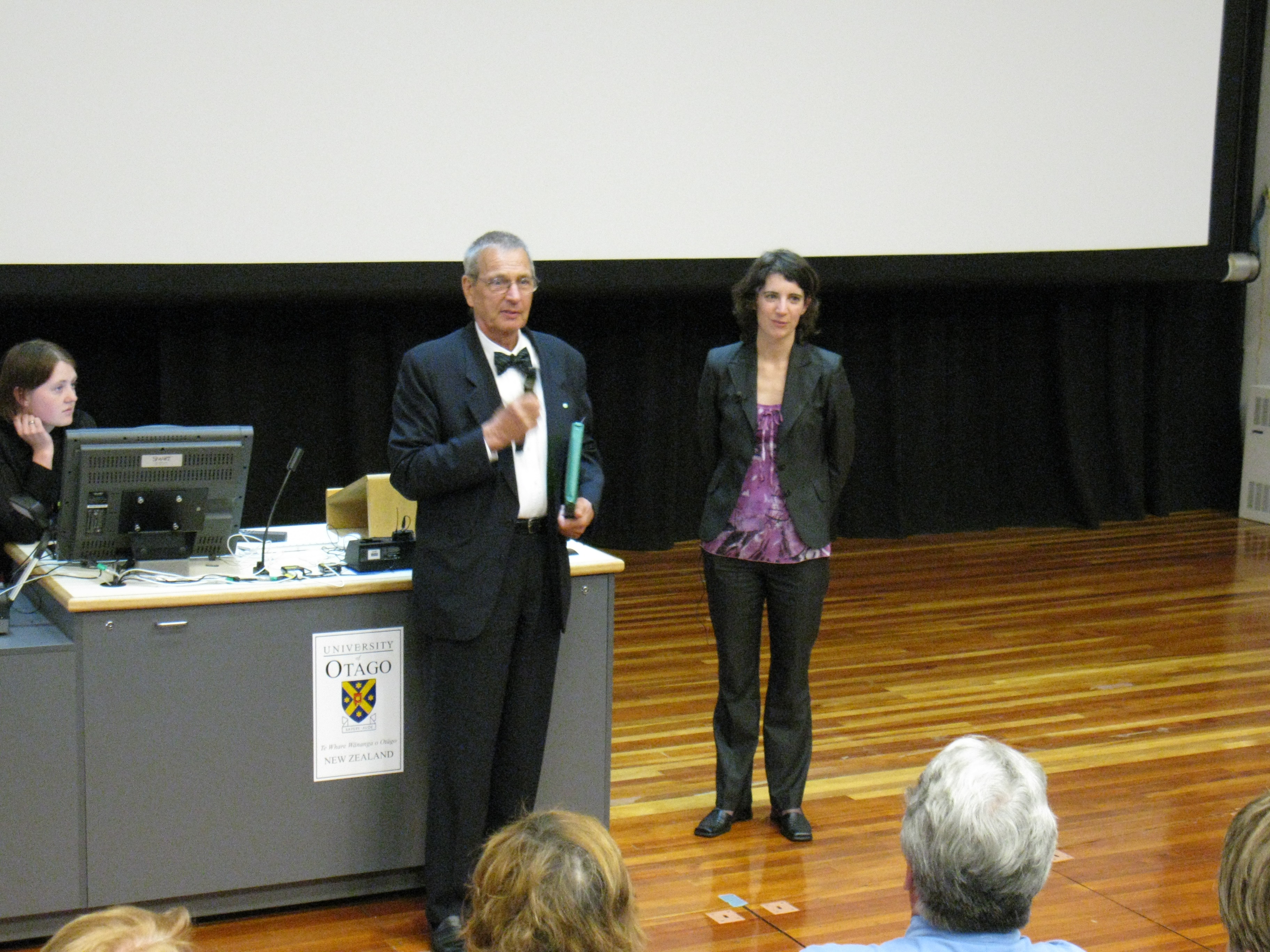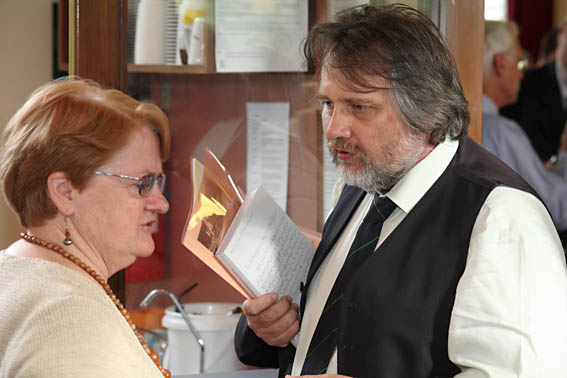|
|
 |
 |
|
Biennial Australian/New Zealand Humboldt Conference
In the Spirit of Alexander von Humboldt and Friedrich Wilhelm von Humboldt:
The Role of Fundamental Research in our Society
|
 |
 |
|
The Biennial Meeting of the Association, originally set down for 2009, was held jointly with our New Zealand colleagues from 28 – 30 January, 2010, in conjunction with a Humboldt Symposium, at the University of Otago, Dunedin. This timing enabled representatives of the Humboldt Foundation (AvH) in Bonn to attend and attracted around 100 participants in all, in comparison with the normal 30 – 40 to which we have become accustomed for an AAvHFs Conference in Australia. There were also a number of other supporters of Humboldt activities at the meeting who took part in the proceedings on an occasional basis throughout the two and one half days of the conference.
|
|
|
Following a traditional Mihi whakatau welcome to delegates, the conference opened with a welcome address by Professor Sir David Skegg, Vice-Chancellor of the University of Otago. Prof. Skegg drew attention to the name Humboldt in New Zealands Mountains and Falls. Drawing on the quote from Wilhelm von Humboldt, You need to be more like a gardener than an engineer, Prof. Skegg outlined his ideal model for the administration of a University, already in place at the University of Otago.
|
|
|
|
|
 |
 |
|
Unlike many other institutions in the Australasian region, the University of Otago does not support a senior management team, thus promoting collegiality and enhancing productivity, e.g., the great success of applications to the Marsden Fund (the NZ fund for fundamental research projects) during the last five years. The German Ambassador to New Zealand, His Excellency Thomas Meister, added his words of welcome and expressed good wishes for a successful conference. The third speaker to offer words of welcome was AvH President, Professor Helmut Schwartz who remarked that although Humboldt had never visited NZ during his travels of scientific discovery, he believed that the Humboldt spirit would be present at the Conference.
|
|
 |
He felt that the theme for the conference was most appropriate, given that very few of the everyday items which nowadays we take for granted, would ever have evolved without fundamental or basic research.
|
|
|
 |
 |
|
The two afternoon presentations, an Opening Address by Professor Ekhard Salje, Cambridge University, and Plenary Lecture 1 by Professor Gabrielle McMullen, Australian Catholic University, served to focus delegates on the theme of the conference. Prof. Saljes address, entitled Some Comments on the Evolution of University Systems, traced the historical developments from the original university which provided a place of academic refuge for studies in theology, medicine and law to the present day where universities compete for and enrol large numbers of students. This is not necessarily a good thing for society. For example, in South Korea, with 80% of school leavers attending the university, there is no one left to build cars! He went on to note also that, unlike former times when the university really was a place of basic scholarly learning, there were now many intelligent thinkers outside the university sector, and suggested that something is wrong from this perspective. In the first plenary lecture, Prof. McMullen focused on the reforms in the Australian higher education sector proposed during 2009, through which another scheme for the measurement of Excellence in Research would come about in 2010. Clearly, the difficulty of any such scheme to measure Research Excellence is to make the decision as to whose or what strategy should be put in place to measure Excellence. She felt that there is a need for a broader view of higher education that stresses the role of the University in shaping a nations future, not unlike the Humboldtian philosophy.
|
|
 |
 |
|
An evening reception hosted by the German Ambassador followed at the University Staff Club.
|
|
|
The full days programme for Friday comprised four plenary lectures, three sessions of parallel, contributed presentations and the Biennial Business Meetings of the two Associations. In Dr. Helen Andersons lecture entitled The Place of Fundamental Research in the New Zealand Research Science and Technology she began with the observation of New Zealand, a country populated only in the last 800 years, as being a place in which people, traditionally, had had to be innovative. She believed this innovation is still evident today in the research outputs of NZs eight Government Research Institutes and eight Universities.
|
|
 |
|
|
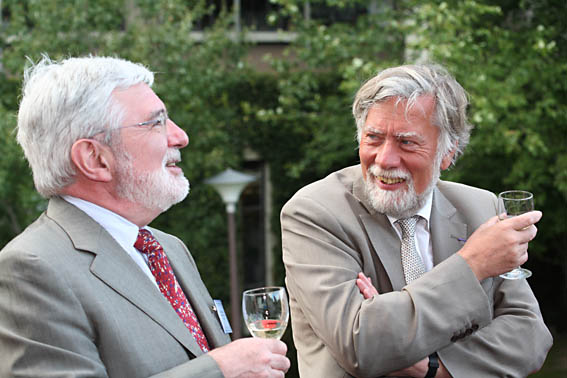 |
|
|
Prof. Ludwig Eichinger (left) and Prof. Ekhard Salje exchange ideas during the evening reception.
|
|
 |
 |
|
Professor Ludwig Eichinger, Institute for German Language, Mannheim, spoke on The German Language: the story of a Germanic language in the middle of Europe and through several illustrations showed how German has been continuously influenced from the neighbouring languages. The Chair of the Council for Humanities, NZ, Professor Ken Strongman, presented a lecture on funding for the humanities within university budgets in Australia and NZ. He pointed out that, contrary to popular belief, this was in fact quite high, around 50%. He illustrated the role of the humanities as being no use whatsoever (quote from Stanley Fish, Law, at Yale) to driving innovation; assisting with people skills; and enabling people to change (in quoting from a speech by Tim Carr to the Australian Press Club in December, 2008). Dr. Garth Carnaby, President of the Royal Society of NZ, in his lecture entitled The Royal Society of NZ and the R&D Funding System in NZ, summarized some results from the Marsden Fund which has an annual budget of only NZ$50M.
Contributed papers were presented in parallel sessions in each of four subject areas, a typical session consisting of two or three presentations. Topics covered areas such as Engineering/Materials, History/Medicine/Disease Control, Mathematics, Energy/Climate/Geography, Zoology/Veterinary Science, English/Humanities and Chemistry/Biochemistry/Food, reflecting the large and diverse extent of disciplines by now typical of Humboldt gatherings. Unfortunately, one had to make a choice between which of many excellent presentations to attend.
|
|
|
 |
 |
 |
 |
|
After such a long day of conferencing, the Conference Dinner at the Otago Museum, opposite the University, together with a most entertaining after-dinner tour-de-force by Julius von Haast Fellow, Professor Ekkehart Hahn, entitled Natural Chemistry: Reactions with Air, Mineral Water and Orange Juice, provided an opportunity for some social interaction.
|
|
|
|
The programme for Saturday morning followed a similar pattern to that of the previous day but with just two plenary lectures (Nos. 6 and 7) and two parallel paper sessions. In plenary lecture 6, Professor Olga Holtz, University of California-Berkeley and TU Berlin, illustrated some of the beauty of pure mathematics as, for example, illustrated by the Euler formulae, in a lecture entitled Pure Mathematics, may it never be of any use.
|
|
 |
 |
|
In presenting plenary lecture 7, Professor John Drummond, Blair Professor of Music, University of Otago, applied genuine scientific method in a lecture entitled A Tempest of Research, and illustrated how it was possible to construct a piece of creative artistic output following a scientific research approach, which could provide a possible solution within the Arts for quantifying research output.
Within the two parallel sessions, this time under some of the above subject areas but with the addition of Genetics and History/Methodology, there were in all 16 presentations. I found particular fascination in a Zoology/Veterinary Sciences session in which I learned about attempts to relocate flying-foxes from an endangered habitat within the Melbourne Botanic Gardens and about lessons to be learned about the sense of scents from studies of honeybees.
|
 |
 |
|
The Saturday afternoon session began with a presentation to the founding and recently retired President of our Association, Professor Peter Schwerdtfeger, and a lecture on recent developments within the AvH by Dr. Katrin Amian, the current Foundation staff member responsible for our region. The conference ended with an Open Discussion Forum entitled The Role of Fundamental Science in our Society, most efficiently chaired by Professor Peter A. Schwerdtfeger (NZ) in which we heard not only the opinions of the forum panel but also many comments from the floor. While I believe most would have been in agreement with the opinions expressed urging funding authorities to provide more support for fundamental research in universities, I am not convinced that we shall witness significant changes to research funding as a result.
|
|
|
 |
 |
|
Overall the combined conference was most successful and enjoyable. The traditional social outing would have added to the general feeling of collegiality, but we all realize that time and programming constraints mitigated against this possibility.
|
 |
 |
|
The next Biennial Meeting of our Association will be held in Sydney in late 2011. Our Kiwi colleagues have set a standard which will be challenging to match.
|
|

